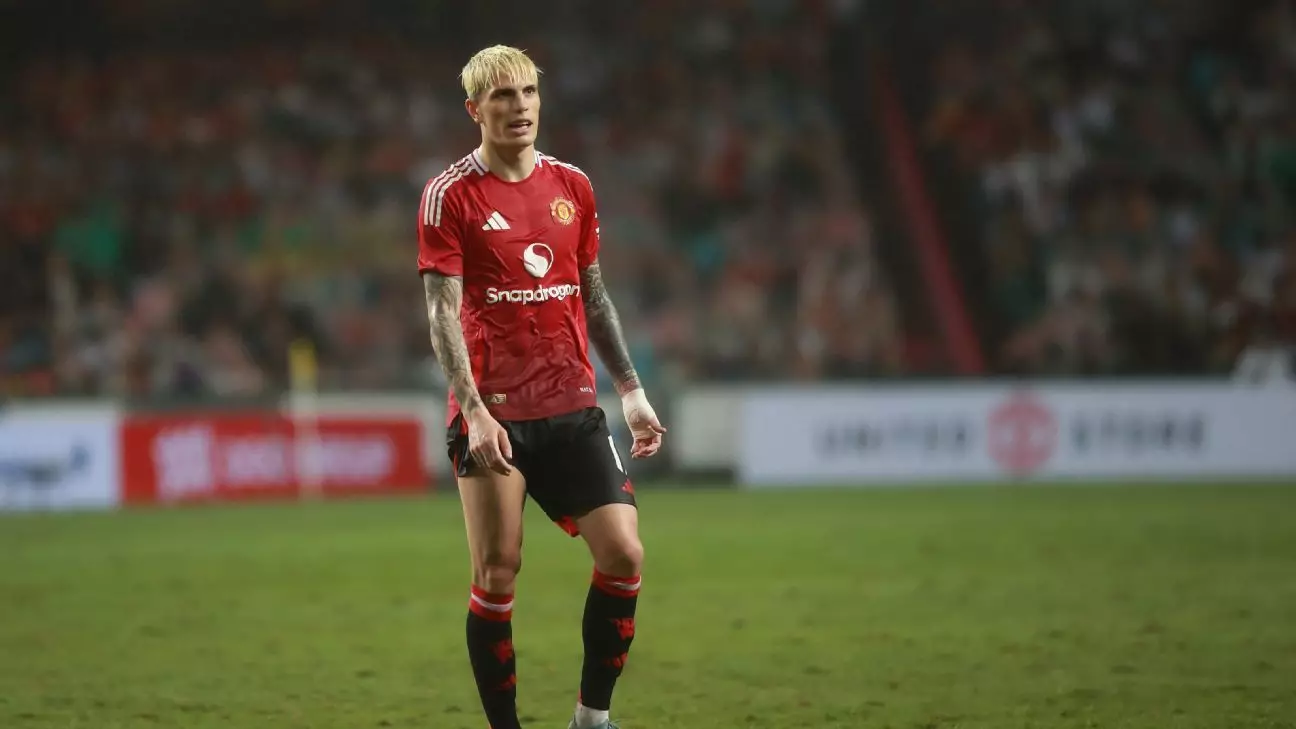Manchester United’s latest transfer strategy reveals a club at a crossroads—both ambitious and pragmatic. Ruben Amorim’s comments showcase a manager willing to adapt and explore all avenues to shape a competitive squad. His openness to reintegrate players like Alejandro Garnacho, Jadon Sancho, Antony, and Tyrell Malacia emphasizes a mindset rooted in flexibility and patience. Instead of strict exclusion, Amorim subtly hints at an environment where players are given room to reconsider their positions. This approach underscores the importance of valuing talent and potential over short-term pragmatism. It demonstrates an understanding that some players may flourish with renewed incentives or clarity, especially if transfer negotiations fall through before the deadline.
The approach reflects a broader trend in football management—an acknowledgment that not every dismissed or sidelined player is lost for good. By holding open the possibility of bringing these players back into the fold, United’s coaching staff preserve their assets and keep the door ajar for intra-club competition and individual growth. Amorim’s comments on players seeking new challenges or more playing time reveal that the club recognizes these players as human entities with ambitions, rather than mere commodities to be discarded. Such an attitude could foster a healthier club environment and resilience among players, who may see their frustrations as transient rather than terminal.
Strategic Flexibility in Transfer Market
Amorim’s words also serve as a subtle warning to rival clubs and agents: Manchester United is ready to wait for the right deals. His reassurance that “if they don’t reach that number, they will be Manchester United players” demonstrates unwavering intent to squabble over player valuation and to maintain leverage. It’s a reminder that the club isn’t rushing into hurried signings just for the sake of it, and that patience could yield better-value acquisitions. It also indicates that the club is prepared to absorb unanticipated surprises—either new arrivals or unexpected departures—building a squad capable of challenging on multiple fronts.
Furthermore, the emphasis on playing time as a factor for international prospects like Rashford—who is loaned to Barcelona—illustrates an understanding of modern football’s balancing act. Young players and international stars alike must find consistent minutes to thrive and achieve their personal goals, such as World Cup participation. Amorim seems to view this not as a setback but as an opportunity to create a profond, competitive environment where players are motivated to excel. The message is clear: Manchester United’s squad will be fluid, adaptable, and responsive to emerging circumstances.
Balancing Ambition with Reality in Squad Building
Adding new signings like Matheus Cunha and Bryan Mbeumo are part of Amorim’s calculated plan, but he is also realistic about the club’s immediate needs. His neutrality toward acquiring a “No. 9” highlights a pragmatic approach—prioritizing squad cohesion and internal development over headline-grabbing signings. His statement that he would be “happy” starting the season with this squad signals confidence rooted in trust and a belief that the current players are capable of competing effectively.
This pragmatic stance might be seen as a sign of maturity amid the uncertainty surrounding United’s transfer window. It transforms the perceived need for immediate star power into an opportunity for nurturing existing talent, fostering internal competition, and emphasizing the work ethic of players like Rasmus Hojlund and Josh Zirkzee. Amorim’s careful selection process underscores a strategic patience—waiting for the right moment to enhance the squad without jeopardizing stability or cohesion.
The Underlying Message: A Club in Transit
Overall, Manchester United under Amorim is a club in transition, navigating the delicate balance between chasing glory and managing expectations. The manager’s openness to various scenarios—whether players returning, new signings arriving, or old stagers fighting for their spots—reflects a comprehensive understanding that success is rarely linear. Success, instead, emerges from adaptability, resilience, and strategic patience.
By openly talking about the squad’s fluid nature and emphasizing the importance of internal competition, Amorim sets a tone that values readiness and flexibility. It’s a bold stance—one that challenges the more conventional approach of rushing transfers or clinging to star names. United’s current position signals a club determined to build a squad with depth, character, and purpose, even if it means waiting until the final seconds of the transfer window to strike the perfect deal. In the end, such calculated realism might be the key to transforming Manchester United into a powerhouse that combines ambition with stability.

Leave a Reply